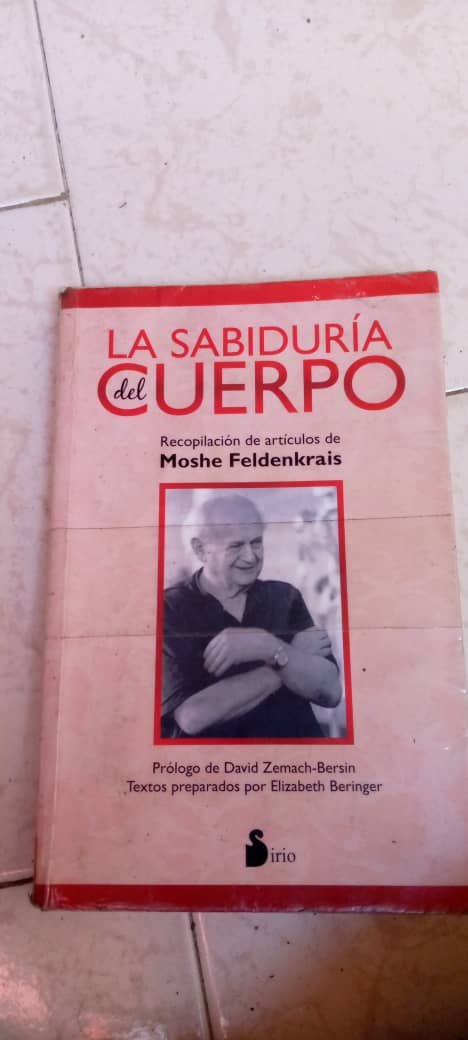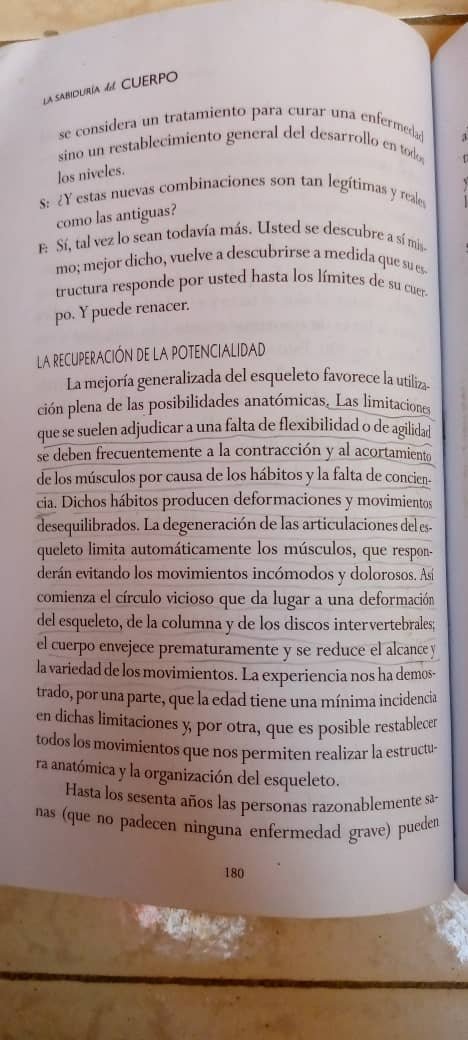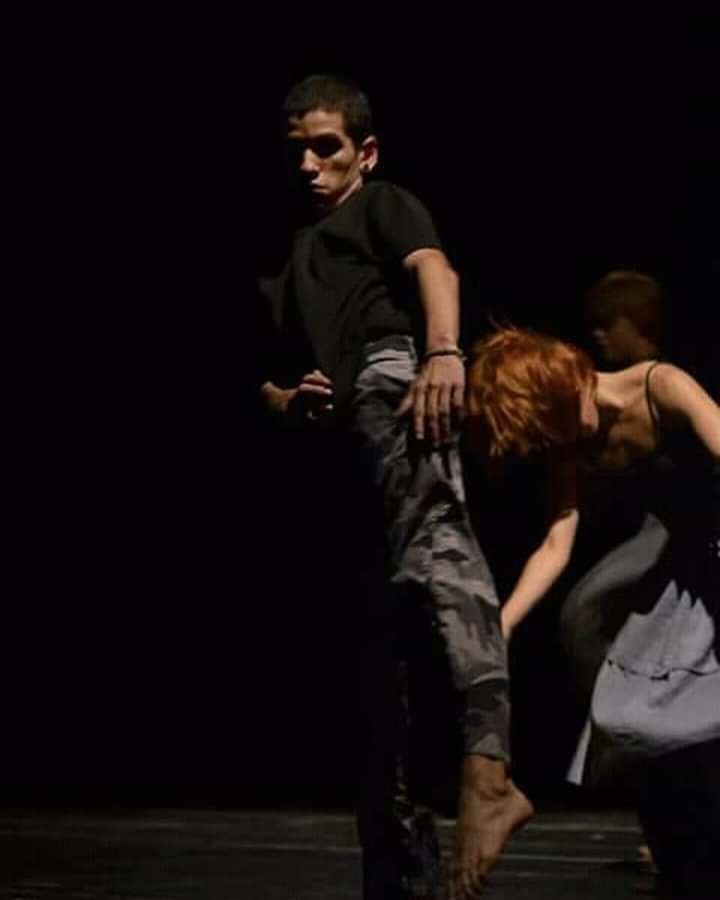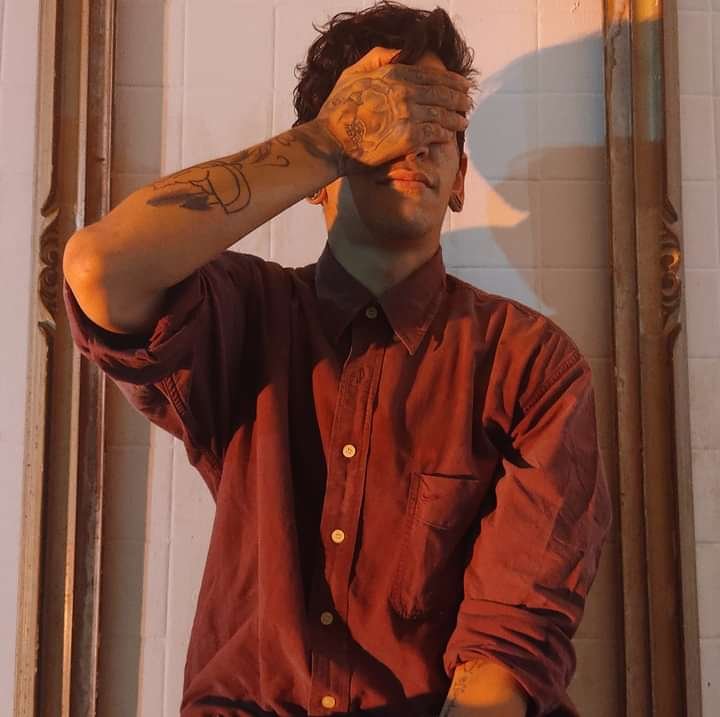
Moshe Pinchas Feldenkrais nació en 1904 en un pueblo de Rusia que hoy pertenece a Ucrania. Se intereso por las técnicas de autodefensa. En 1930 se mudo a París para estudiar ingeniería y física. Además de su trabajo académico, estudió artes marciales japonesas y fue uno de los primeros profesionales en conseguir un cinturón negro en judo.
Moshe Pinchas Feldenkrais was born in 1904 in a village in Russia that today belongs to the Ukraine. He became interested in self-defense techniques. In 1930 he moved to Paris to study engineering and physics. In addition to his academic work, he studied Japanese martial arts and was one of the first professionals to earn a black belt in judo.

En 1940 caminadaba con dificultad y sufría intensos dolores debido a unas lesiones de rodillas que padecía desde ya hace varios años. Ningún cirujano que consulto le dio mayor esperanza. En consecuencia, decidió resolver su problema por sus propios medios.
In 1940 he walked with difficulty and suffered intense pain due to knee injuries that he had suffered for several years. No surgeon I've seen gave him more hope. Consequently, he decided to solve his problem on his own.

Feldenkrais empezó a estudiar anatomía funcional. Aplico leyes de la física y del movimientos a los movimientos humano cotidianos y analizó el proceso por el que adquirimos originalmente la mayor parte de las funciones motoras basicas. Pensó que si podía entender como se produce realmente el aprendizaje, sería capaz de midificar los viejos hábitos y recuperar las funciones perdidas tales cómo la capacidad de caminar. Esta investigación cambiara la dirección de si vida profesional. Llegó a la conclusión de que el hecho de reducir el esfuerzo muscular mejora la agudeza de las sensaciones cinestesicas y permite al individuo diferenciar con precisión todo lo que hace y tomar conciencia de los aspectos mas inconscientes y desconocidos de la organización física, del movimiento y de la acción.
Resumen de la descripción bibliográfica de moshe feldenkrais en el libro. La sabiduría del cuerpo.
Feldenkrais began studying functional anatomy. He applied laws of physics and motion to everyday human movements and analyzed the process by which we originally acquired most of the basic motor functions. He thought that if he could understand how learning actually occurs, he would be able to change old habits and regain lost functions such as the ability to walk. This research will change the direction of his professional life. He concluded that the fact of reducing muscular effort improves the acuity of kinesthetic sensations and allows the individual to accurately differentiate everything he does and become aware of the most unconscious and unknown aspects of physical organization, movement and behavior. the action.
Summary of the bibliographic description of moshe feldenkrais in the book. The wisdom of the body.

Quería hablar de la autocrítica, de la percepción de mí alegorizando mi ego. pero entonces leí una cita de feldenkrais que hizo catarsis a la pregunta.
I wanted to talk about self-criticism, about the perception of me allegorizing my ego. but then i read a quote from feldenkrais that made the question cathartic.


"Las limitaciones que se suelen adjudicar a la falta de flexibilidad o de agilidad se debe frecuentemente a la contracción y acortamiento de los músculos por causa de los hábitos y la falta de conciencia."
Palabras de feldenkrais. Libro la sabiduría del cuerpo. Pag. 180
"The limitations that are usually attributed to the lack of flexibility or agility are frequently due to the contraction and shortening of the muscles due to habits and lack of awareness."
Words of feldenkrais. Book the wisdom of the body. Page 180

¿Que pasa con las capacidades individuales en un sistema instintivamente basado en organizaciones sociales y hasta donde influye nuestra capacidad racional?
What happens to individual capacities in a system instinctively based on social organizations and to what extent does our rational capacity influence it?


Mis dudas no vienen de ningún sentimiento que afirme una capacidad intrépida investigativa. mas bien me llega como un instinto, quiero ver y enseñar no solo mis capacidades, si no que me interesa saber y aprender de las tuyas. lo se! dirás que por comparación. pero sabré en mi interior que es pura admiración de la vocación, innovación y exposición personal desde el ser.
My doubts do not come from any feeling that affirms an intrepid investigative capacity. rather it comes to me as an instinct, I want to see and teach not only my abilities, but also that I am interested in knowing and learning from yours. I know! You will say that by comparison. but I will know in my interior that it is pure admiration of the vocation, innovation and personal exhibition from the being.

Es claro, entiendo que mis deseos no son los deseos de los demás. y lucho indiscutible mente con la idea de expresiones tan personales como se perciben en el primer beso. una experiencia general, pero en si, parte de un individualismo muy profundo. cada primer beso es diferente...
Como bailar.
It is clear, I understand that my wishes are not the wishes of others. and I struggle unquestionably with the idea of expressions as personal as they are perceived in the first kiss. a general experience, but in itself, part of a very deep individualism. every first kiss is different...
How to dance.



Agradecimientos a @betavirosis por el hermoso separador.
Thanks to @betavirosis for the beautiful separator.
The rewards earned on this comment will go directly to the person sharing the post on Twitter as long as they are registered with @poshtoken. Sign up at https://hiveposh.com.